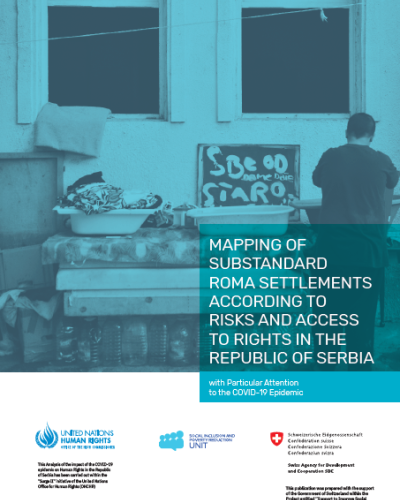Mapping of substandard Roma settlements according to risks and access to rights in the republic of Serbia

Reports arising from the review of UN human rights mechanisms as well as other relevant sources have continuously highlighted the extremely vulnerable position of the Roma national minority in the Republic of Serbia. Discrimination, widespread socio-economic marginalization, and social exclusion are just some of the risks thought to have become more exacerbated with the emergence of the coronavirus. Additionally, new risks have emerged that have particularly affected the poorest sections of the Roma community – those without sustainable income or access to essential services for basic living needs (safe drinking water, electricity, sewerage) and virus protection (protective equipment, sanitation, possibilities for social distancing).
Analyses and reports from the period before the outbreak of coronavirus indicate the inadequacy of living conditions in substandard Roma settlements in Serbia, whose inhabitants face a lack of access to basic infrastructure and utilities (electricity, safe drinking water, and sewerage), education and health services, sustainable sources of income, etc. The emergence of the coronavirus has further contributed to increasing the vulnerability of this category of the population, both in terms of health and socio-economic risks).
Publication can be accessed at the following link.





